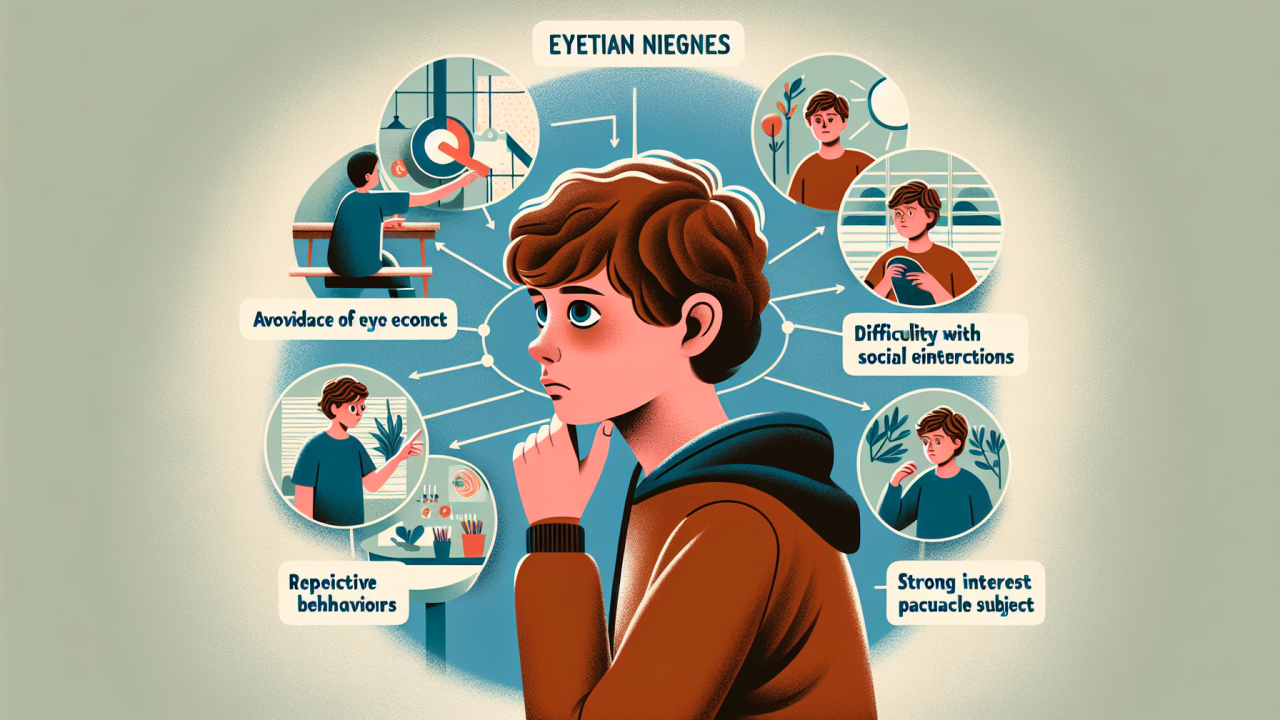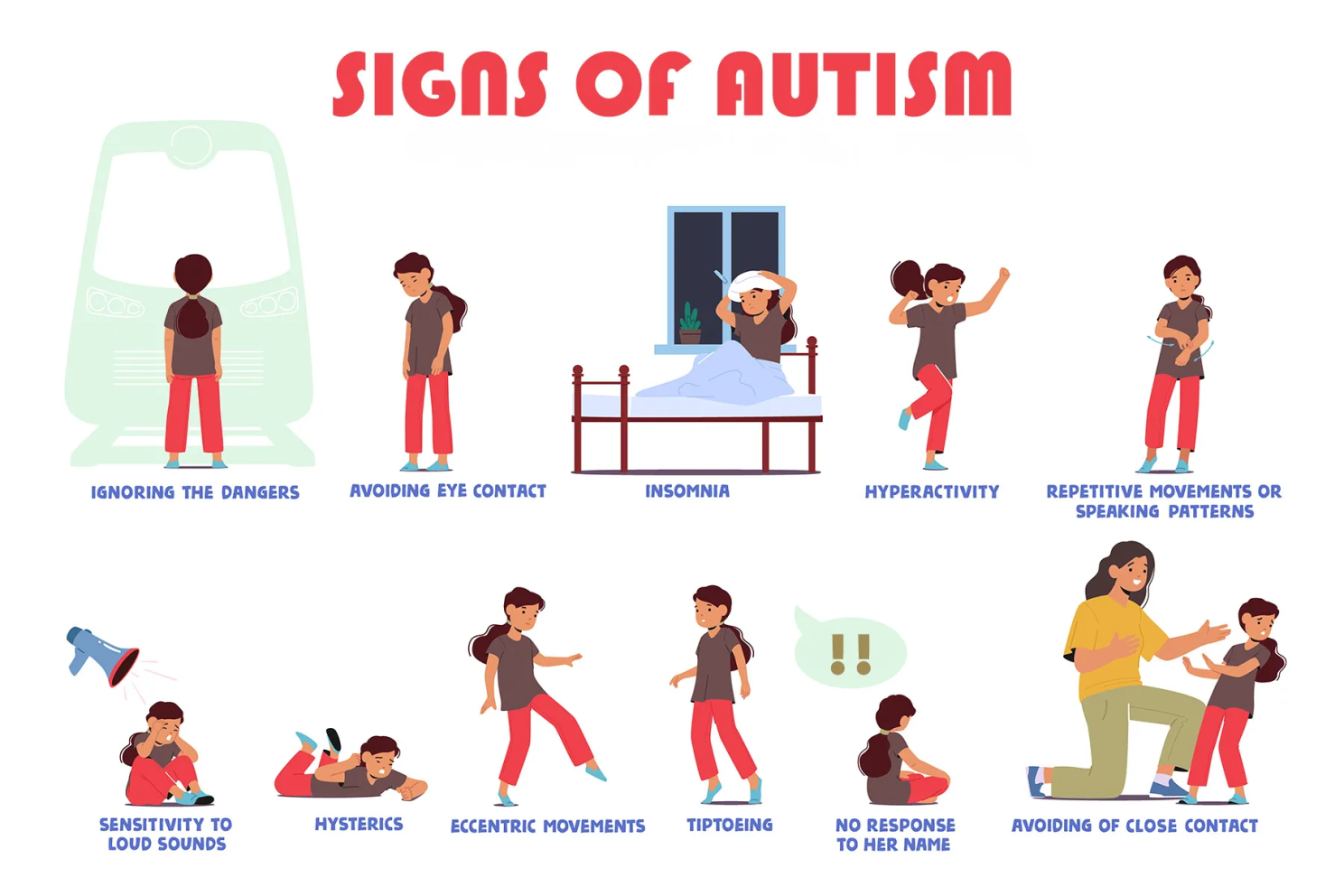
Symptoms of autism usually appear before a child turns 3. Some people show signs from birth.
Signs of autism
- A lack of eye contact
- A narrow range of interests or intense interest in certain topics
- Doing something over and over, like repeating words or phrases, rocking back and forth, or fidgeting with objects (such as flipping a light switch)
- High sensitivity to sounds, touches, smells, or sights that seem ordinary to other people
- Not looking at or listening to other people
- Not looking at things when another person points them out to you
- Not wanting to be held or cuddled
- Problems understanding or using speech, gestures, facial expressions, or tone of voice
- Talking in a sing-song, flat, or robotic voice
- Trouble adapting to changes in routine
Some people with autism may also have seizures. These might not start until adolescence.

Autism symptoms in adults
In adults, autism may show up in specific ways. Common symptoms can include:
- Trouble understanding what other people are thinking or feeling
- Choosing to be on your own or having a hard time making friends
- Anxiety about social activities
- Keeping a daily routine and getting upset if it changes
- Having a hard time expressing how you feel
- Taking things literally or not understanding sarcasm
- Coming off as blunt, uninterested, or rude to others without meaning to
Other signs of autism in adults could include:
- Avoiding eye contact
- Not understanding social cues or “rules”
- Getting too close to others or getting upset if someone gets too close or touches you
- Being very interested in specific things
- Picking up on small details, smells, sounds, or patterns that other people don’t
- Wanting to plan things very carefully before doing them
Autism symptoms in children
Children may show different signs of autism. They may include:
- Not responding to their name by 9 months old
- Not showing facial expressions by 9 months old
- Not wanting to play simple games (like pat-a-cake) by 12 months old
- Doesn’t use gestures (like waving hello) by 12 months old
- Doesn’t understand when other people are sad or mad by 24 month old
- Doesn’t notice or want to join other children to play by 36 months old
- Doesn’t sing, act, or dance for you by 60 months old
- Lines up toys in a specific order and gets upset if the order is changed
- Shows obsessive interests
- Rocks their body, flaps their hands, or spins in circles
- Delayed language, movement, learning, or cognitive skills
- Odd sleeping or eating habits
- Less or more fear toward things than would ordinarily be expected
Stimming
Stimming is a self-stimulating behavior, such as hand and arm flapping, rocking, spinning, twirling, jumping, head-banging, or other similar body movements. It can also include using an object over and over again, like flicking a rubber band, twirling a string, touching something with a certain texture, and more.
People with autism may stim for fun, to ease boredom, or to cope with stress or anxiety. It can also help them adjust the level of sensory input. For example, they may twirl a string so they can watch it or focus on one sound so they can tune out another loud or stressful noise.
Autism meltdowns
At times, a person with autism may become overwhelmed by a situation and can’t find a way to respond. This can cause them to have a meltdown. A meltdown is more than a tantrum – it’s a nervous system response that a person with autism can’t control. They may cry, scream, or act out physically by kicking, punching, or biting. They may shut down completely and stop responding in any way. Meltdowns are the body’s physical response to an overwhelming sensory or emotional experience.
To support someone with autism during a meltdown: Give them space, treat them with respect, and ensure a safe environment.






